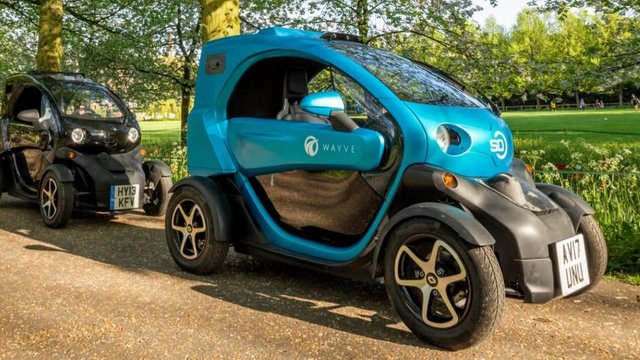
Two researchers at the University of Cambrige who have doctorate in artificial intelligence are conducting a study to base machine learning on autonomic tools. A video released by the company they named Wayve shows that two Renault Twizy without any autonomous driving skills learn to follow a road in just 20 minutes.
Wayve founders Amar Shah and Alex Kendall think that too much manpower is being used to solve the problem of autonomous vehicles. Shah "The missing piece of the autonomous driving puzzle is intelligent algorithms; not more sensors, rules or maps. People have an admirable ability to complete complex tasks in the real world because our brain allows us to learn quickly and use this knowledge in our other experiences. We want to give the vehicles a better brain, not more equipment. "
With this approach, the crew took a Renault Twizy and placed a single camera in front of it. In addition, a computer was able to control the car's steering wheel, gas and brakes. The car is linked to a graphics processing unit that can instantly analyze camera data. Then the system was run with a learning program based on experience, optimization and investigation.
Twizy tried on a narrow and slightly curved road. A driver was seated on the driver's seat and the vehicle delivered the entire control to the system. The system, which does not know what its mission is, made experiments with the vehicle's control mechanisms.
Whenever the car attempted to move out of the way, the team intervened and said it was a mistake. Algorithm tool 'penalize' due to mistakes and human intervention in the time gone without rewarded. After 20 attempts in 20 minutes, he learned that the car had to be on the road.
Wayve believes that the quality of learning systems will play a key role in who will control the autonomous vehicle market within the next 10 years. In a blog post published by Wayve, "DeepMind has shown us that deep-aided learning methods can deliver superior human performance in Go, chess, and computer games, almost every time than in a rule-based system. We also want to show a similar philosophy here in the real world, especially in autonomous vehicles. " The article also stated that if an autonomous driving algorithm with 95 percent of the human driver's quality is presented to the user, he will be able to utilize the abilities of the different drivers to develop his talents over time and achieve human success.
A similar approach is actually being implemented by Tesla. Tesla's Autopilot software notes every error made by the vehicle's autonomous drive system, sends it to the center and trains other Tesla who will pass through the same point. An autonomous vehicle is an impressive technology that teaches people to learn from their mistakes like a human being, self-educates and applies what they learn in real life.
@erkander great stuff let them keep coming
Downvoting a post can decrease pending rewards and make it less visible. Common reasons:
Submit